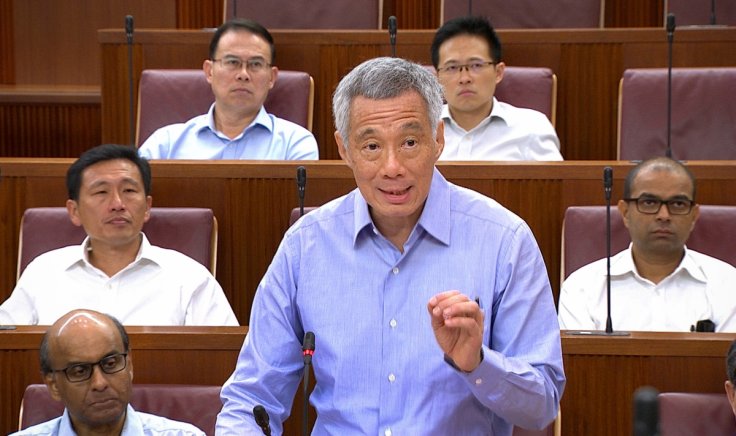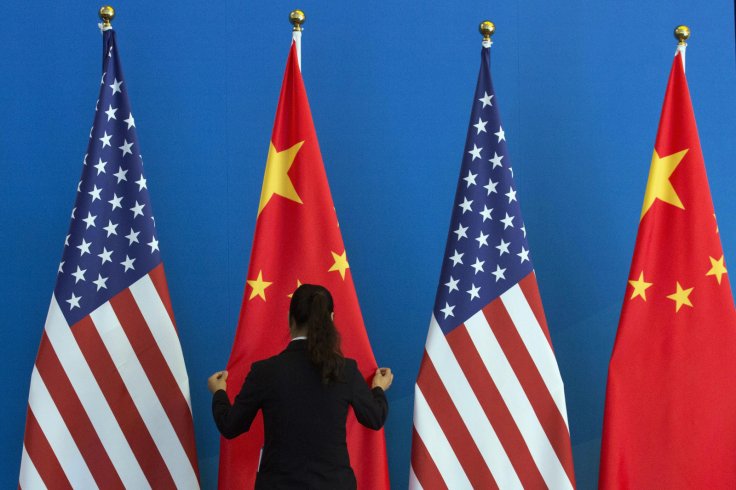Not that China and the U.S. have enjoyed cordial relationship over the years but since Donald Trump assumed the presidency, the animosity has reached a boiling point. With trade war and blaming each other over every matter possible, it has mainly put the Asian geopolitics in jeopardy.
However, the Coronavirus pandemic has had such an impact on the relationship that it is beyond repair. The White House has repeatedly accused Beijing of conspiring and hiding the truth over COVID-19 outbreak initially. As the mistrust grew, the U.S. even withdrew from the World Health Organization (WHO) citing Chinese influence over the world body.
Even if Trump loses to Democratic candidate Joe Biden in the next November U.S. Presidential Election, it is unlikely that there will be any improvements, according to Singapore Prime Minister Lee Hsien Loong, who recently won his re-election bid.

US-China Relation Beyond Repair
Speaking at a virtual teleconference with American think-tank, the Atlantic Council, Lee said he would hope to see a stable relationship between the two superpowers so that Asian countries like Singapore can prosper.
"Historically in presidential election years, the US-China relationship always gets entangled in the presidential campaign. And after that, after some time when the new administration settles in, you begin to understand what, really, the world is like and things settle down," he said in response to moderator David Rubenstein, an American businessman.
Lee added that he was unsure if that would happen this time. "The field is quite different, and the degree of animus, and sad to say, bipartisan consensus on treating China as a threat is quite extraordinary. And I fear that it may carry on over past the election and if it does, I think that bodes ill for the world," he said.
The hostility toward China is not confined to the White House or Capitol Hill. Over the last few years, Americans have grown with negative views about China. Thus, it would need bipartisan support to establish stability in their trade relationship that is close to $800 billion.

"If you can establish a stable, a predictable policy with bipartisan consensus, I think it would be a great help to all your friends and partners who want to be able to depend on you and to rely on you, without the risk that one day the big power may suddenly decide its interests lie elsewhere," Lee said.
Impact on Asian Countries
The biggest impact of the animosity has been on the Asian countries that have relied on a stable relationship between the U.S. and China. For a country like Singapore, which depends on trade with both countries and can not side with one, the fallout could be devastating. The city-state depends on 'connectedness' with other countries. It's a global trading hub and an international seaport and now also a hub for telecommunication. But if it's forced to side with either Beijing or Washington, the very definition of Singapore will be in jeopardy.
With the U.S. already the biggest ally of European and South American nations, China tried to influence the Asian countries, especially the South and Southeast regions. During Barack Obama's presidency, Washington tried to strike a balance and minimize Chinese influence with the Trans-Pacific Trade Partnership. But Trump withdrew the U.S. from the pact within days of assuming office saying that it would hurt his country and that cleared the way for China. Soon, 11 other countries joined hands and ratified the agreement.
Lee said it would be ideal if the U.S. could come back in the deal. That way the U.S. could advance its interests in the Asian region while also establish an environment of cooperation that could potentially force China to come to the table of fair game, set by the right rules.
"It will help the region to integrate, which will build trust, which will raise standards for trade, and for economic exchange between the countries. And who knows, one day the Chinese may decide they have to come and join the game and participate by the same rules and I think that you will have had a win-win," Lee added.
Huawei Welcome in Singapore
Of late, the most debated topic has been Huawei as the instrument for the U.S. to hit back at China. The Chinese telecom giant has been accused of spying in the U.S. and Washington has urged its allies to ban the company.
While many countries including the U.K. and other European nations besides Canada have done so, Singapore isn't among them. When Nokia and Ericsson won the bid instead of 5G giant Huawei. Lee said Huawei was not excluded from bidding but it failed to win the bid. He added that in future projects, Huawei will be considered saying "no system is totally 100 percent secure."









